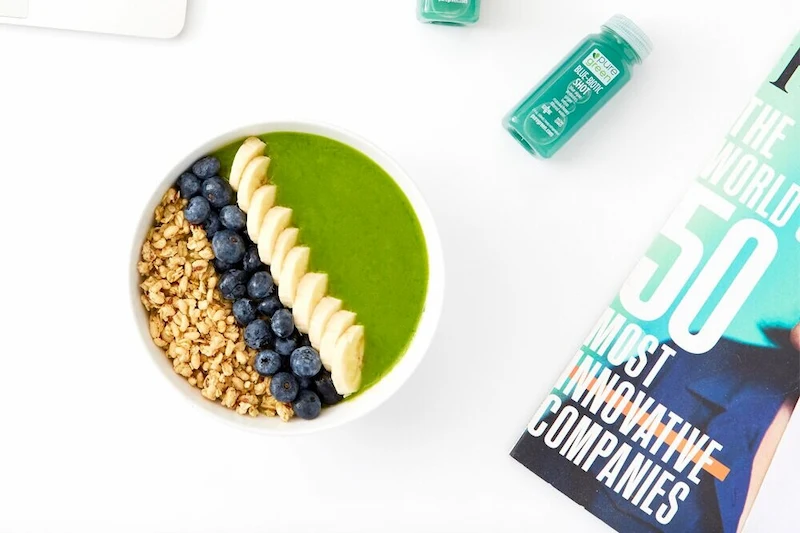Are smoothies healthier than juice?
It’s no secret that cold-pressed juice and smoothies have risen in popularity in recent years and that both are seen as very healthy additions to a diet or even meal replacements. With the rise of juice cleanses, there has also been a lot of chatter and research about the health benefits, if any, there are to incorporating juice or smoothies into your diet. Lots of articles seem to claim that smoothies are healthier because they retain more fiber from the fruits.
While this is true, there are other benefits to drinking juice instead of a smoothie. The truth is there are pros and cons to each. We are going to break down the ways in which smoothies and juice are beneficial and how best to consume both, finally putting an end to the question of if smoothies or juice are healthier.
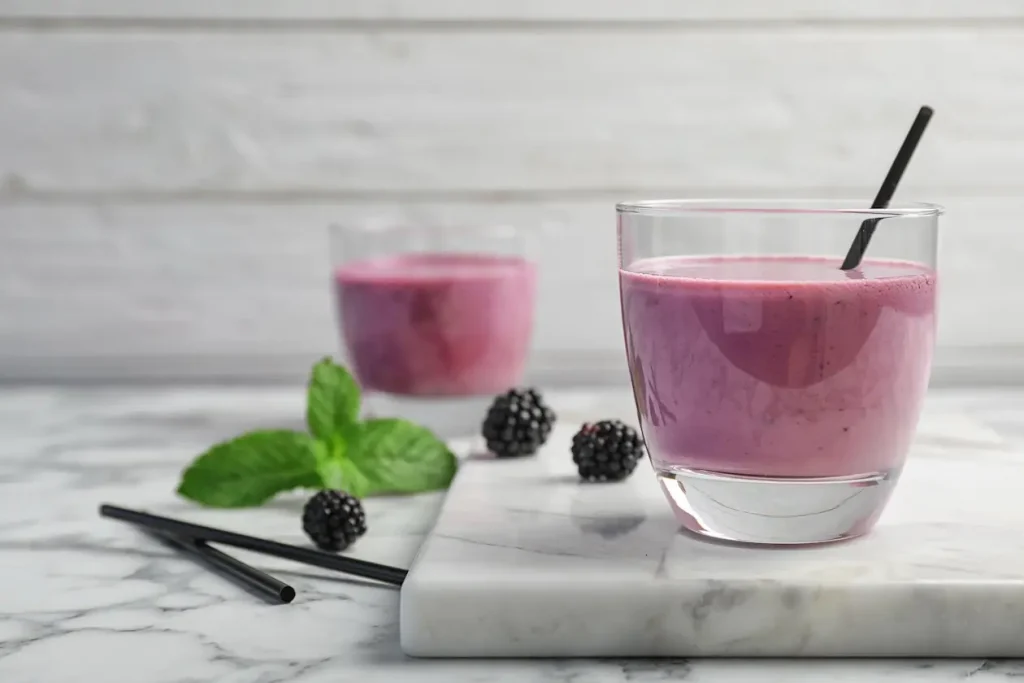
Health Benefits of Smoothies
Are smoothies healthy? It’s a question that has had a lot of debate. Here we are going to examine the health benefits of smoothies over juices.
When tackling the question, “are smoothies healthier than juice,” it’s crucial to delve into the nutritional composition of each. Smoothies typically include whole fruits and vegetables, meaning they retain the fiber that is lost during the juicing process. This fiber is beneficial for digestive health, helps maintain a feeling of fullness, and regulates the absorption of sugars into the bloodstream.
Therefore, smoothies can be more satiating and less likely to cause a rapid spike in blood sugar levels. Additionally, the versatility of smoothies allows for the inclusion of other health-boosting ingredients such as proteins, healthy fats from nuts or seeds, and superfoods like spirulina or chia seeds, making them a more balanced meal or snack option.
On the other hand, juices, particularly those made primarily from fruits, can be high in natural sugars and lack the fiber that aids in moderating blood sugar levels. While they do provide a concentrated source of vitamins and minerals, the absence of fiber means they might not keep you as full as a smoothie would.
However, for individuals who have difficulty digesting fiber, juices can be a more suitable option. In summary, whether smoothies are healthier than juice largely depends on your dietary needs and health goals. Smoothies generally offer a more balanced nutrient profile, especially when it comes to fiber content and the ability to incorporate a variety of nutritious ingredients. However, both smoothies and juices have their place in a healthy diet, and the choice between them should be based on individual health requirements and preferences.
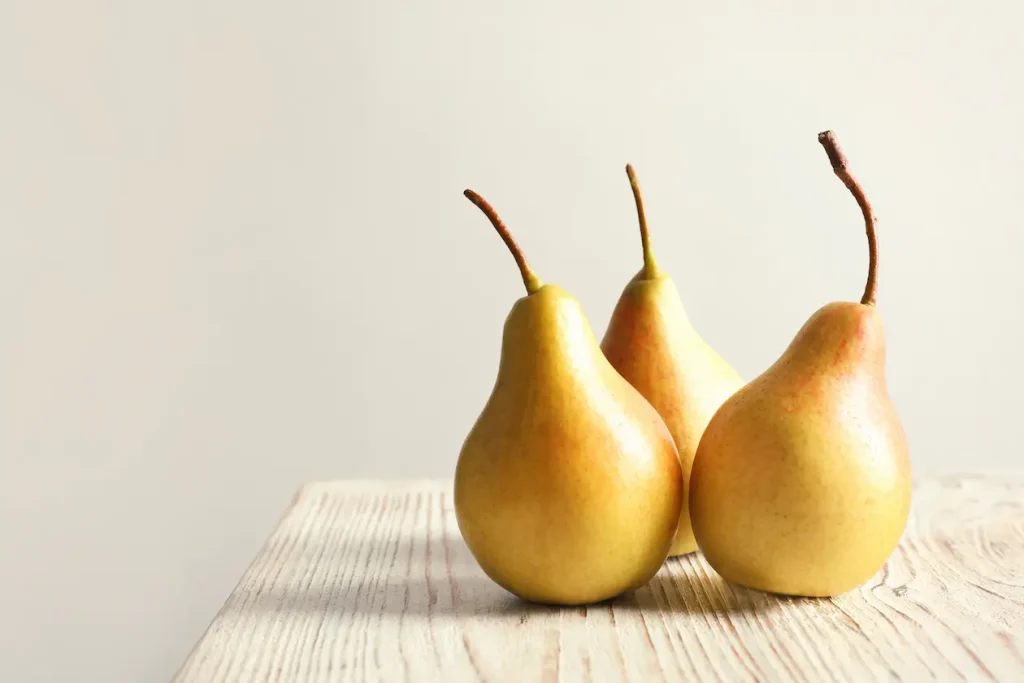
High in Fiber
Because smoothies are a blend of whole foods, they have more fiber than juices. This is good for multiple reasons: it is better for digestion and leaves you feeling fuller and more satiated. You can also add fiber-heavy stuff ingredients to boost this, Fiber is generally something that we don’t consume enough of, so smoothies can be a good way to get this necessary stuff.
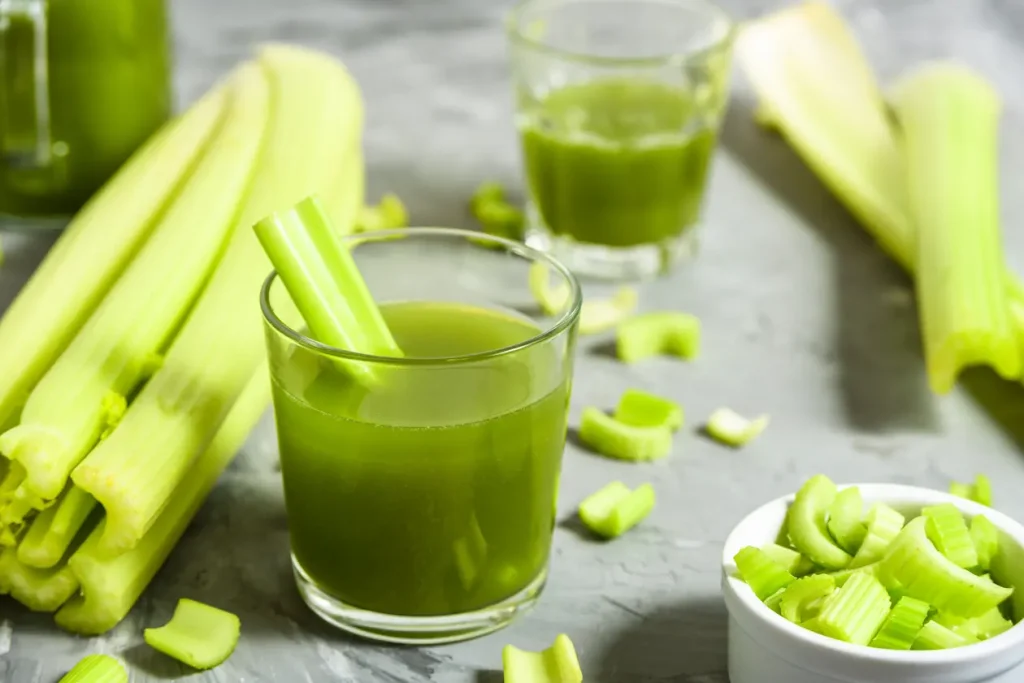
Variety of Nutrients and Vitamins
Smoothies generally retain more of the naturally occurring vitamins from fruits and veggies since juicing can filter some of those out. Juice also varies more greatly in terms of the nutrients included, since they usually have fewer ingredients than smoothies. Think in terms of what ingredients are going to be high in vitamins also, leafy greens, and bright veggies are going to give you a good hit of vitamins without all the sugar of fruit and can really help to enhance a smoothie and help you get necessary vitamins that are hard to get other ways.
Frozen fruit like frozen banana, frozen mango, frozen pineapple on your smoothie recipe never provide much nutrition. To get more nutrition to add fresh fruit, chia seeds, coconut milk, and passion fruit.
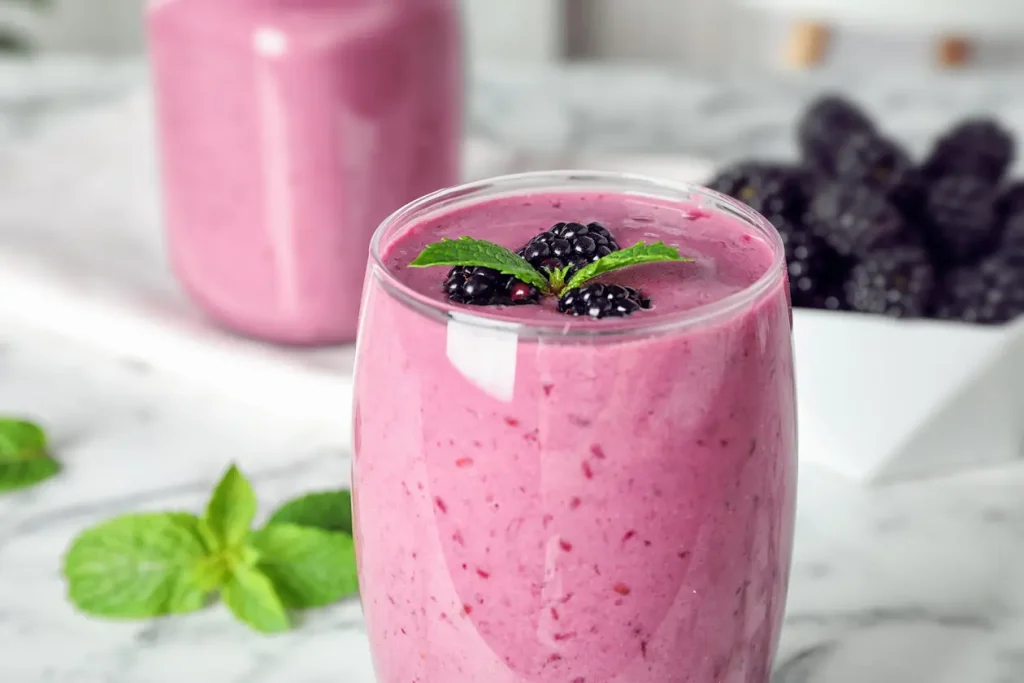
Better as a Meal Replacement
Smoothies are much more filling and contain more variety of ingredients, so they are absolutely better as a meal replacement than a simple juice. You can add all kinds of different things to a smoothie to create a nice, well-rounded meal. If you get some veggies in there, good fats, fiber, etc., a smoothie can leave you feeling very satiated and get you through your morning with no problem. You do have to be cognizant of what you’re including, however, because not all smoothies are created equal.
Smoothies contain banana, fresh fruit, peanut butter, almond milk, yogurt, almond butter, strawberry, mixed berry, mango, pineapple, and others. You can also use add protein powder, chia seed, greek yogurt, nut butter, blueberry, or other essential elements to your smoothie bowl recipe. Never use whipped cream to bring a creamy texture to your smoothie bowl. Do not use any added sugar or ice cream in your smoothie bowl to increase the taste.
For a different taste, you can make a different smoothie like pineapple smoothie, green smoothies, banana smoothie, peanut butter smoothie, peach smoothie, cookies, or spinach. These healthy smoothies provide healthy fat to your breakfast.

Lower Sugar Content
While some smoothies can have a lot of sugar, because of the wider variety of ingredients, smoothies can have a lower sugar content than juices. Fruit is very high in sugar, and while the naturally occurring stuff is better than processed cane sugar, your body does have a similar reaction. This can cause spikes in blood pressure that cause energy crashes later in the day. To avoid this, go for more veggies or nut-heavy healthy smoothies.
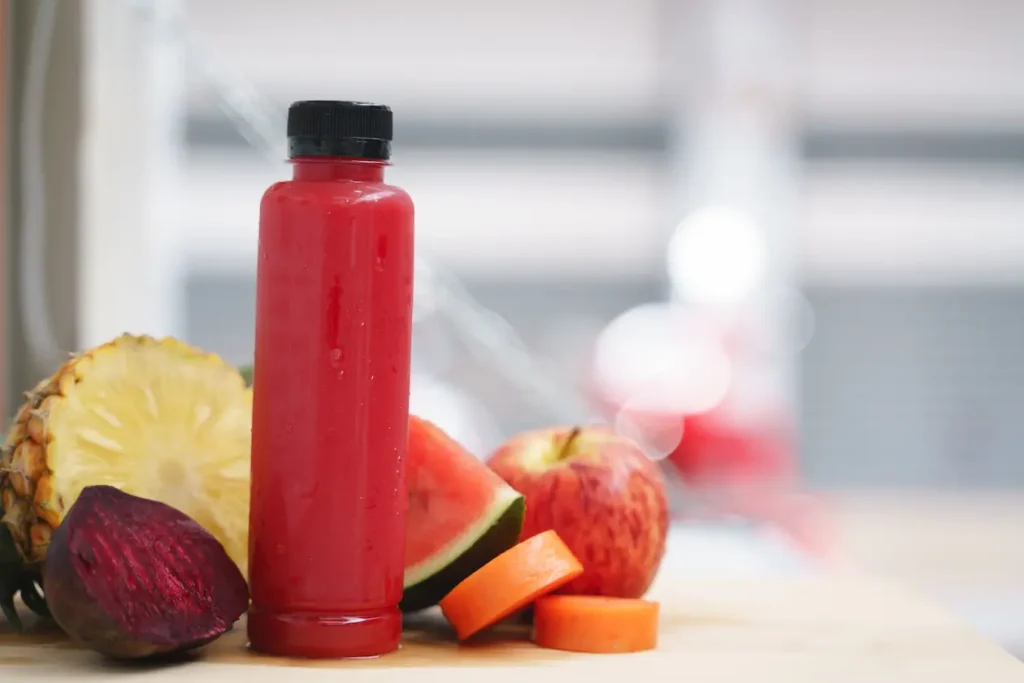
So what are the benefits of juice?
I know what you’re thinking, smoothies sound pretty good, seems like they are the winner. But fruit juice has a whole host of benefits as well, they just usually serve a different purpose.
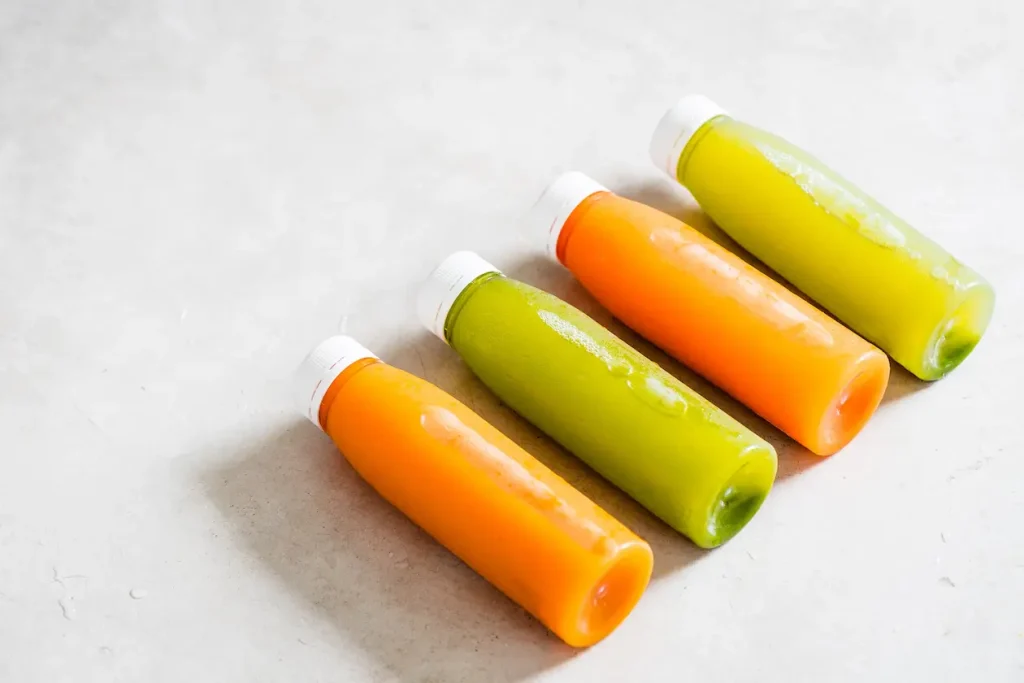
Better for Cleansing
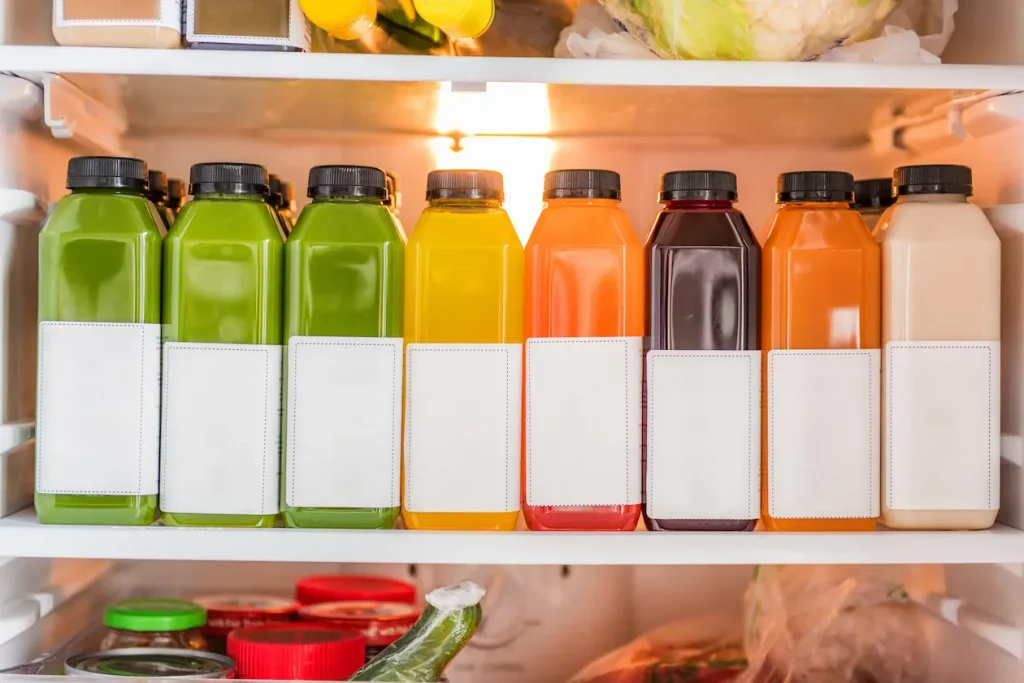
Lower in Calories
While juices can have higher sugar content, they are also generally lower in overall calories. This is because the ingredients tend to be simpler and usually include fewer calorie-heavy ingredients such as nuts, avocado, seeds, and dairy or non-dairy milk products.
Smoothies can be secretly extremely high in calories, and while this might be ok if you’re using them as a meal replacement, sometimes they contain more calories than you’d normally eat in one sitting. It’s important to pay attention to what’s going into each smoothie to keep an eye on the calorie content.
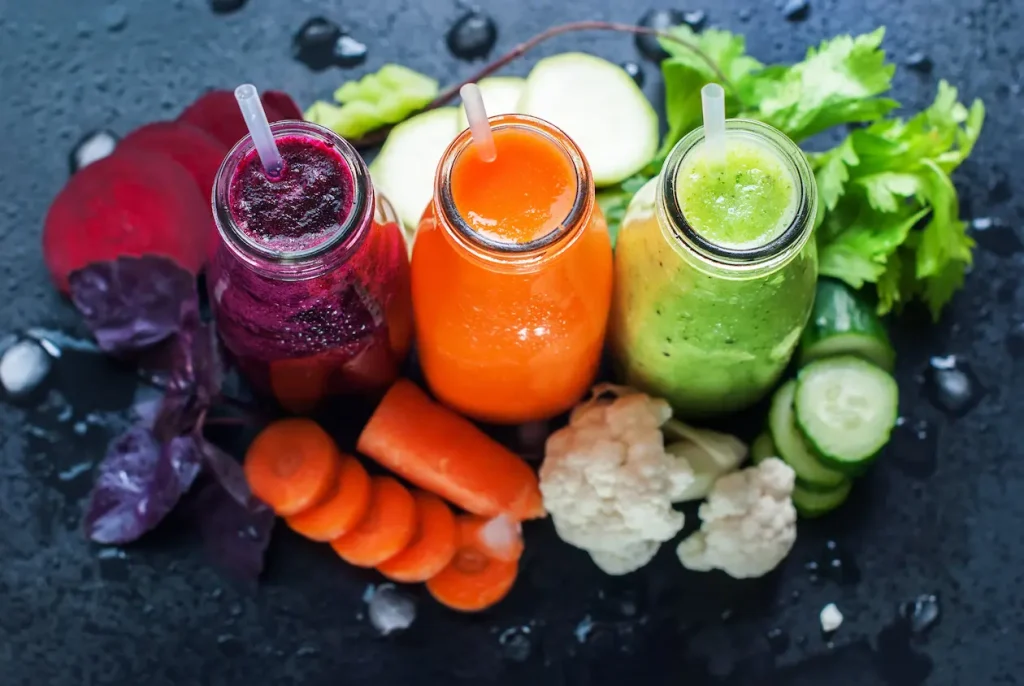
Highly Concentrated
Juices are highly concentrated with fruits and veggies, and therefore nutrients. So, a small portion of juice can serve as a full portion of fruits or veggies. Some of the negatives about juice are merely related to the fact that they tend to be sold in 16 oz. portions.
But if you drink that over the course of the day, you can get a few servings of veggies to supplement your diet and avoid the intense sugar high that comes from drinking the whole thing at once. Coconut water is also very nutritious for health. Orange juice is a great source of vitamin c. Health-conscious people always care about vitamin c.
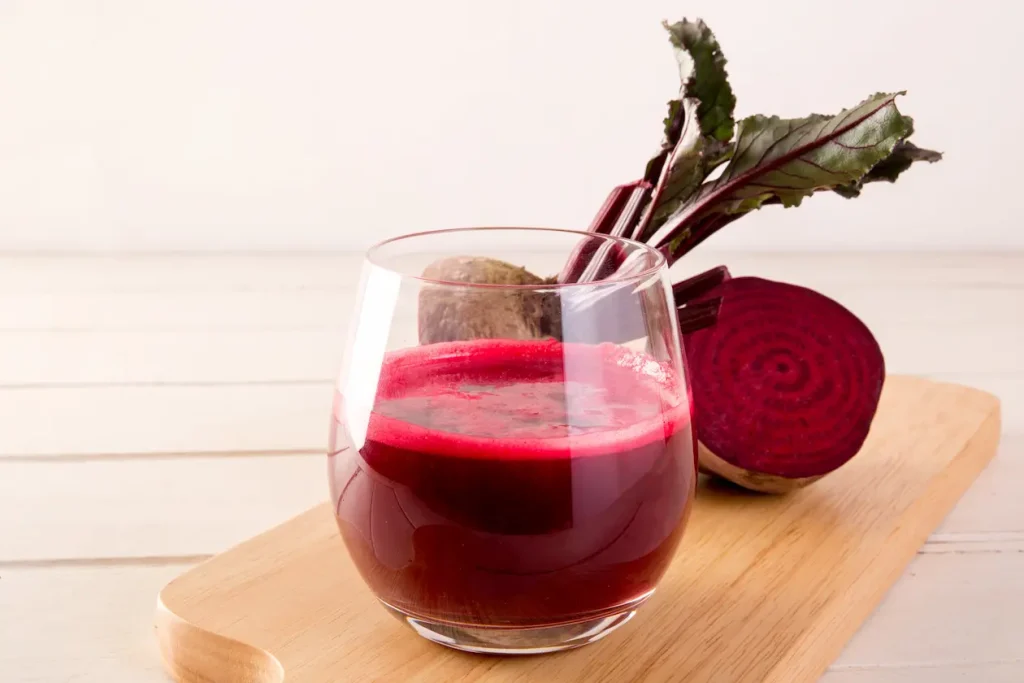
Easier to Extract Nutrients
While the lower fiber content can be a con for juices, it is also a pro. Because the juices are stripped down, it is much easier for the body to extract all of the vitamins and nutrients from the juice because creating the juice has done some of the work that your body would have had to do to get these important vitamins.
So who’s the winner?
The truth is that both juices and smoothies have a ton of benefits, it’s all about what your goals are. Are smoothies healthy? Yes, most of the time. Is juice healthy? Yes, again. It’s important to keep in mind what the purpose of each is, and drink both juices and smoothies consciously. As with anything, moderation is key.
If you are aware of the pros and cons both can become a part of an overall healthy diet and can help you achieve all of your health goals.
When considering the question, “are smoothies healthier than juice,” it’s essential to understand the fundamental differences between these two drinks. Smoothies often include whole fruits and vegetables, which means they retain the fiber that is typically lost in the juicing process.
This fiber is crucial for digestive health and helps to slow down the absorption of sugar into the bloodstream, making smoothies generally more filling and less likely to cause a rapid spike in blood sugar levels. Additionally, smoothies can be more versatile, allowing for the inclusion of other nutritious ingredients like nuts, seeds, yogurt, or protein powder, which can enhance their nutritional profile.
On the other hand, juices, while they do provide concentrated amounts of vitamins and minerals, lack the fiber found in whole fruits and vegetables. This means they can be higher in sugar and less satiating than smoothies. However, juices can be a good option for those looking to increase their intake of specific nutrients quickly and easily. It’s also worth noting that some people may find juices easier to digest than smoothies, especially if they have sensitive digestive systems.
Ultimately, whether smoothies are healthier than juice depends on your individual health goals, dietary needs, and how you incorporate them into your diet. Both can be part of a healthy diet, but it’s important to consider their nutritional differences and consume them in a way that aligns with your personal health objectives.




